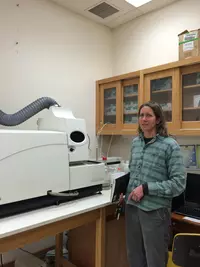Instructor Stories
This module has been successfully used at both small and large universities in Introductory Physical Geology, Hydrogeology, and Earth System Science. Students have ranged from freshman science majors to senior geoscience majors.
If you are interested in online teaching, the bottom of the Summary for each unit includes guidance for our best estimation of how online-appropriate that unit is. The InTeGrate project also has advice on using similar resources in Online or Hybrid Courses.
Webinar about teaching this module: Addressing Water Resources and Sustainability in Upper-level Undergraduate Courses
Bruce Douglas at Indiana University–Bloomington. The module was taught in an introductory physical geology course for twenty-four science majors (largely freshmen). Although these students were less advanced than the level for which this module was originally intended, they did well and were very excited about the new geodetic data sets and their applications to the hydrologic cycle. In particular, students were engaged by using the same basic technology that is in their phones to monitor water resources. I did provide somewhat more structure and guidance than would be required for upper-level students.
Carey Grazis: Hydrology at Central Washington University. This Hydrogeology course had about a dozen upper-division geoscience majors. The students were excited to become experts in the California drought and to learn about GRACE and GPS methods of quantifying terrestrial water storage. The module prompted them to think about large-scale water budgets and, in particular, the challenges of quantifying changes in groundwater storage.
Eric Small at UNAVCO. At the University of Colorado the module was taught in an Earth System Science course of nearly fifty sophomore students. They learned the challenges and methods of measuring different aspects of the water cycle and gained a better understanding of the very real societal hurdles to providing sufficient water for agriculture and communities, especially during droughts.


![[creative commons]](/images/creativecommons_16.png)


